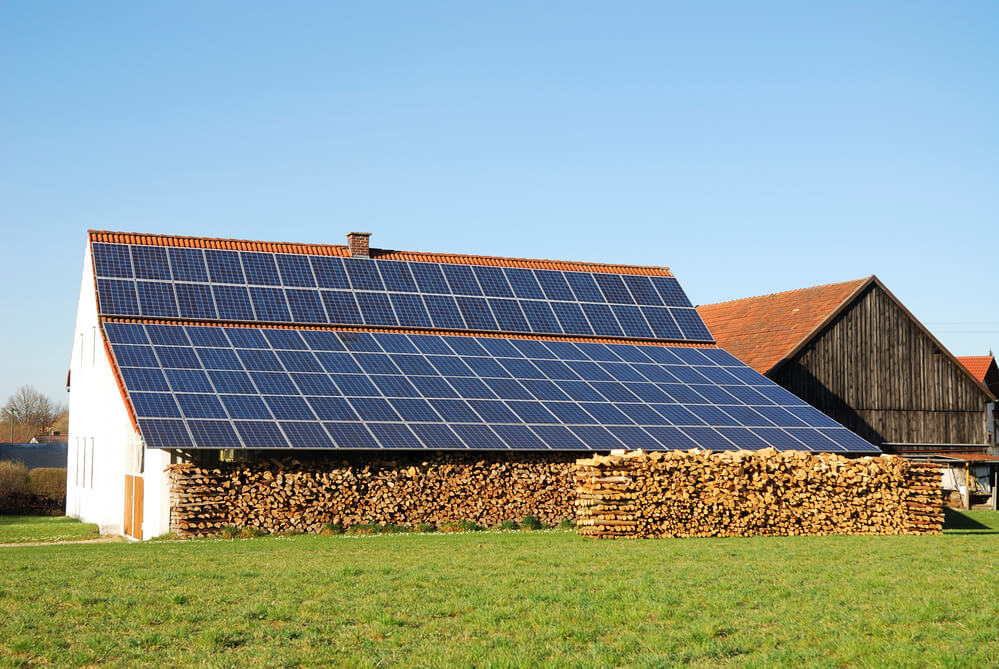As one of the leading solar professionals in the United States, particularly in California, I’ve seen a growing interest in off-grid and remote living. Whether it’s a cabin in the mountains, a tiny home in the desert, or a rural farmhouse, more people are seeking independence from the grid. Solar energy offers a reliable, sustainable solution for powering homes in remote locations, providing autonomy and reducing environmental impact. In this blog, we’ll explore the benefits of using solar energy for off-grid living.

Why Choose Solar for Off-Grid Living?
Energy Independence: Off-grid living is all about self-sufficiency. Solar energy provides the independence you need by allowing you to generate your own electricity, free from utility companies and rising energy costs.
Reliable Power Source: In remote areas, access to the grid can be unreliable or nonexistent. Solar panels harness the sun’s energy, which is abundant in most parts of the country, ensuring a consistent and dependable power supply.
Sustainability: Solar energy is a clean, renewable resource. By choosing solar, you reduce your reliance on fossil fuels, minimize your carbon footprint, and contribute to a more sustainable planet.
How Solar Energy Powers Off-Grid Homes
Solar Panels: Photovoltaic (PV) panels capture sunlight and convert it into electricity. For off-grid systems, these panels are usually installed on rooftops or ground mounts, depending on the location and available space.
Battery Storage: One of the most critical components of an off-grid solar system is battery storage. Batteries store excess energy generated during the day, allowing you to use it at night or during cloudy periods. This ensures a steady power supply, even when the sun isn’t shining.
Inverter: The inverter converts the DC electricity generated by the solar panels into AC electricity, which is used to power your home’s appliances and devices. Some inverters also manage energy distribution between solar panels, batteries, and backup generators.
Backup Generator: While a well-designed solar system with sufficient battery storage can meet most of your energy needs, a backup generator can provide additional security during extended periods of low sunlight or high energy demand.
Financial Advantages
Cost Savings: While the initial investment in an off-grid solar system can be significant, it often pays for itself over time by eliminating monthly utility bills. Additionally, the costs of extending the grid to a remote location can be prohibitive, making solar a more cost-effective option.
Incentives: Various federal and state incentives, rebates, and tax credits are available to offset the cost of installing a solar system. Even for off-grid applications, these incentives can significantly reduce the upfront expense.
Low Maintenance Costs: Solar panels require minimal maintenance and have a lifespan of 25 years or more. This long-term reliability reduces ongoing costs and ensures a consistent power supply for years to come.
Practical Benefits
Scalability: Off-grid solar systems are highly scalable, allowing you to start small and expand as your energy needs grow. This flexibility is ideal for those living in remote areas who may want to add more solar panels or batteries over time.
Adaptability: Solar energy systems can be customized to meet the specific needs of your off-grid lifestyle. Whether you need to power a tiny home, a full-size house, or a remote business, solar solutions can be tailored to match your energy requirements.
Reduced Environmental Impact: Living off the grid with solar energy minimizes your ecological footprint. By generating clean energy on-site, you reduce the need for fossil fuels and contribute to preserving natural landscapes and wildlife habitats.
Real-World Applications
Remote Cabins: For those who own cabins in isolated areas, solar energy is an ideal solution for powering lights, appliances, and even communication systems, providing comfort without the need for a connection to the grid.
Tiny Homes: Tiny homes often embrace off-grid living, and solar energy fits perfectly into this lifestyle. Compact, efficient, and sustainable, solar systems provide all the energy needed for these minimalist homes.
Farms and Ranches: In rural settings where grid access is limited or expensive, solar energy offers a practical and cost-effective way to power everything from homes to agricultural equipment.
Conclusion
Solar energy is an excellent choice for anyone interested in off-grid or remote living. It offers the independence, reliability, and sustainability needed to thrive in isolated areas. Whether you’re building a remote cabin, living in a tiny home, or running a rural farm, solar power can provide the energy you need while reducing your environmental impact.

Leave A Comment